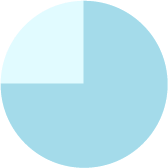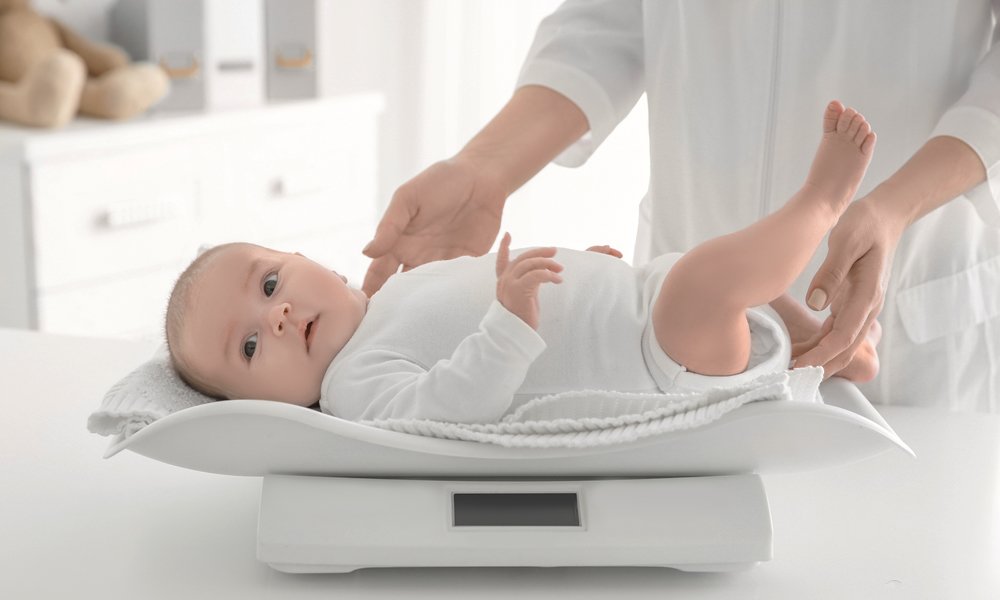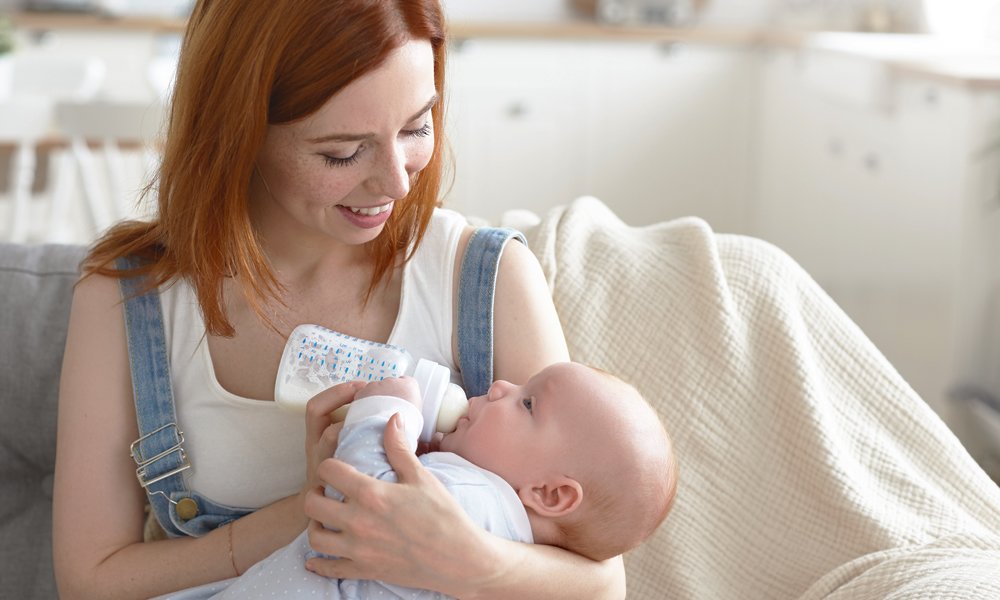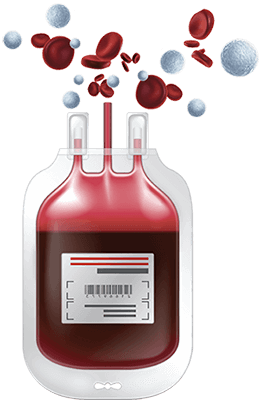Canada's Largest & Oldest Cord Blood Bank
Your two-month-old can recognize you and will acknowledge you by cooing or kicking when you come into view.
Milestones This Month

Most babies can
- “Talk” or make gurgling and cooing sounds
- Hold head up for a short time
- Follow faces and objects that are close

Most babies can
- Recognize your voice
- Smile in response
- Hold head at 45 degrees
- Have smoother movements

A few babies can
- Hold head steady
- Do a mini push-up by lifting head and shoulders
- Bear weight on legs
Baby Development at 2 Months
Your baby is growing very fast at this stage, gaining about 2.2 pounds (1 kilogram) each month. According to the growth charts from the World Health Organization, an average 2-month-old baby girl should way around 11.3 pounds (5.13 kilograms) and a 2-month-old boy around 12.3 pounds (5.58 kilograms). Don’t worry too much about these average numbers. Just make sure your baby is growing steadily because every baby is different.
Your little one is no longer sleeps curled-up in the fetal position and is becoming more and more alert. The kicks are getting stronger and the movements smoother. Your baby also has more head control at this stage and may be even able to do some mini push-ups during tummy time.

Your baby’s senses are developing at a very fast rate as well. He or she may recognize your voice and may be even stop and listen to a particular noise. Talk to your baby and share your musical taste with him or her. Your baby can also follow an object close to her face now.
Teething can start as early as 2 months even though your baby may not cut his or her first tooth until after 6 months. Extra drool, fuzziness, bringing hands to mouth and a mild rash around the mouth are all signs of teething. You can give your baby a cloth or a soft toy to bite on. A cold washcloth may help soothe the pain.
Vaccines
Vaccination is recommended for all babies born in Canada. The first round of immunizations is done at 2 months and usually includes DTaP, Men-C-C, Pneu-C13 and Rota. The order of vaccination will depend on the provide your reside in.
The DTaP-HB-IPV-Hib vaccine provides protection from Diphtheria, Tetanus, Pertussis, Hepatitis B, Polio, and Haemophilus Influenza type B. The Pneu-C13 vaccine protects from pneumonia and Men-C-C against meningitis. The final oral vaccine targets rotavirus, the common cause of gastroenteritis in children.
Give the Gift of Health, Now and in the Future
Your baby’s cord blood has amazing potential to treat disease. The use of cord blood and cord tissue stem cells is continuing to grow and offers exciting treatment options for the entire family in the future.
The future possibilities for combating disease and illness are endless with cordblood and cordtissue banking. Over 1000 clinical trials are currently using cord blood and cord tissue in disease treatment, including breast and ovarian cancer, heart disease, diabetes and much more.
Learn More →
Baby Tip
Wave a teddy bear about 7-8 inches away from your baby’s face to help your baby develop his or her tracking skills.

Supporting Your Baby
Feeding
You will notice that the feeding sessions are getting shorter with each passing week. Your breastfed baby is still feeding about 6 to 10 times a day. It is likely he or she is getting around 15 to 32 ounces of milk. Your baby may start sleeping for longer stretched. If this happens, feel free to let him or her sleep on. Your baby will tell you when it’s time to eat.
If you are formula feeding, you are probably using every 3 to 4 hours (with 4 to 6 ounces of formula) a day, which amounts to 24 to 36 ounces of formula.

Bowel Movements
Your baby’s bowel is growing with them. So, you may notice that you are getting less diapers with poop. Your formula-fed baby will have 1-2 bowel movements a day. Breastfed babies on the other hand can go up to 7 days without having a bowel movement. At this stage, the key is to track the consistency of your baby’s bowel movements as too hard or too soft stool can be indicative of constipation or diarrhea, respectively.
Sleep
A typical 2-month-old should be sleeping for a total of 14 to 16 hours a day. Your baby should be getting about 8 to 10 hours of sleep (interrupted) at night, and another 4 to 8 hours during the day spread into 3 naps. Some babies may need more sleep, some less. Babies are as unique as adults when it comes to just how much sleep they need.
Have Questions about Cord Blood Banking?




